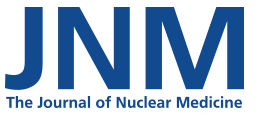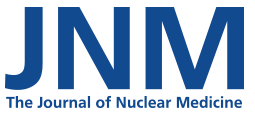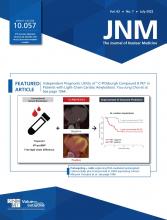Biogen Reassesses Plans for Aduhelm in AD
In a series of press releases and statements in late April and early May, Biogen Inc. (Cambridge, MA), the maker of the Alzheimer disease–targeted treatment Aduhelm (aducanumab), announced new plans following a series of approval setbacks. The drug, a monoclonal antibody directed against β-amyloid, had been given conditional U.S. Food and Drug Administration (FDA) approval on June 7, 2021. Subsequent controversy over the initial proposed cost of the drug ($56,000/y, later reduced to $28,000/y) data on effectiveness, and potential side effects was the focus of both public and professional medical commentary. On January 11 the U.S. Centers for Medicare & Medicaid Services (CMS) released a proposed National Coverage Determination (NCD) decision memorandum that would allow only coverage with evidence development (CED), effectively restricting Medicare reimbursement to individuals enrolled in qualifying clinical trials. On April 7, the proposed NCD was finalized.
Biogen informed its investors on April 22 that it had notified the European Medicines Agency (EMA) of a decision to withdraw its Marketing Authorization Application (MAA) for aducanumab for treatment of the early stages of Alzheimer disease. The company withdrew its application following interactions with the EMA Committee for Medicinal Products for Human Use (CHMP) in which the committee indicated that data provided thus far would not be sufficient to support a positive opinion on EMA marketing authorization. Biogen’s MAA had been under review by the CHMP in response to the company’s request for a reexamination of the negative opinion issued in December 2021.
On April 28, Biogen announced that despite rollbacks of its U.S. and international marketing infrastructure for Aduhelm, all U.S. patients who began treatment on or before April 7, 2022, would be eligible to receive the drug at no cost for the duration of their treatments or for the duration of the program. In addition, patients who were already enrolled in Biogen’s Free Drug Program would automatically continue in the program and continue to receive the medicine at no cost. Biogen’s program does not cover diagnostics or other potential fees associated with treatment administration and monitoring. “One of our immediate priorities following the NCD decision is to support patients on therapy who were uncertain whether they could receive their next infusion,” said Alisha Alaimo, president of Biogen’s U.S. Organization. “This program allows eligible patients continued access to Aduhelm and aims to help them avoid long-term interruptions in their care.”
Biogen issued a follow-up to its quarterly statement on May 3 indicating that it would be “substantially eliminating commercial infrastructure” related to Aduhelm and was planning additional associated cost-cutting measures. The statement noted that U.S. Biogen expected to continue funding certain regulatory and research and development activities for Aduhelm, including continuation of the EMBARK redosing study and initiation of the phase 4 postmarketing requirement study, ENVISION. Biogen stated that “additional actions regarding Aduhelm may be informed by upcoming data readouts expected for this class of antibodies, as well as further engagement with the FDA and CMS.” The company also announced that its chief executive, Michel Vounatsos, would step down when a replacement could be identified.
Biogen Inc.
Underrepresentation in FDA CAR-T Cell Approval Studies
In an article published on April 20 in JAMA Network OPEN (2022;5[4]:e228161), Al Hadidi et al. from the University of Arkansas for Medical Sciences (Little Rock) reported on a study looking at enrollment of Black participants in clinical trials resulting in subsequent U.S. Food and Drug Administration (FDA) approval of chimeric antigen receptor–T (CAR-T) cell therapies for hematologic malignant neoplasms. Publicly available data from 2017 to 2021 included patients with large B-cell lymphoma, follicular lymphoma, mantle cell lymphoma, acute lymphoblastic leukemia, and multiple myeloma enrolled in 7 clinical trials investigating several CAR-T products. Of the 1,057 patients enrolled in these studies, CAR-T products were administered to 746 (71%), and efficacy was reported for 729 (69%), with 96% of patients enrolled in the United States. Overall, the percentage of Black participants who received CAR-T products and had reported efficacy data varied between 2% and 5% (range, 1–12 participants). Black patients were significantly underrepresented in comparison to actual disease prevalence across all hematologic malignancies. Adjusted prevalence calculations showed the lowest participation-to-prevalence ratio of 0.2 for multiple myeloma and 0.6 for large B-cell lymphoma. The authors concluded that these findings suggest substantial disparities affecting Black patients across all approved CAR-T products used to treat hematologic malignant neoplasms, despite otherwise limited effective treatment options. They added that these findings “might aid policy discussions regarding the immediate need of regulations that enforce certain thresholds of Black patients’ enrollment before granting FDA approval.”
JAMA Network OPEN
Contrast Media Shortage
The GE Healthcare (Boston, MA) production facility in Shiangai, China, that manufactures almost the entire U.S. supply of the Omnipaque (iohexol) contrast agent product lines was shut down in April as a result of Chinese government restrictions related to COVID-19. Visipaque (iodixanol) was also in short supply. According to GE Healthcare, the supply impact was not related to quality, raw material supply, or supply chain issues. GE Healthcare announced that they would use a secondary manufacturing facility in Ireland to supplement U.S. Omnipaque supply. The supply interruption had an almost immediate effect on scheduling and performance of contrast-enhanced imaging in the United States, with significant related media coverage. In a May 18 letter to customers, GE referred to the situation as “fluid,” as the company worked to expand production capacity and collaborate with local Shanghai authorities to “enable increasing numbers of operators to return to the site, complying with local COVID-19 protocols.” To enable availability and continuity, GE was “balancing supply of available product globally” and, in some markets, introducing measures “to reduce order quantities but with a higher frequency of delivery, as well as optimizing production to focus on 3 main product variations.” Production output from Shanghai was expected to continue to increase and return to full production capacity “as soon as local authorities allow.” On May 23 GE released an update, indicating that the plant had increased production output from 0% of capacity when first closed to 60% capacity by May 21. Production was expected to be at 75% capacity by mid-June. Deliveries were being accelerated by changing some logistic routes from sea to air.
SNMMI addressed the shortage in mid-May, expressing hope that the supply issue would be resolved quickly but reminding practitioners that radiopharmaceuticals remain available and are an excellent alternative for some diagnostic procedures. For example, V/Q lung scanning can be considered as an alternative to cardiac CT angiography (CTA) of pulmonary arteries, and stress cardiac nuclear studies (PET or SPECT) may serve as alternatives in some patients scheduled for cardiac CTA.
The American College of Radiology Committee on Drugs and Contrast Media has issued guidance on the contrast agent shortage and suggested strategies to conserve contrast media, including delaying elective procedures. A special report from the Radiological Society of North America suggested short-term strategies, including establishing an incident command center to direct and monitor contrast media usage, converting exams to noncontrast when possible, reducing contrast dose, and substituting other types of exams, such as MRI, ultrasound, or noncontrast PET/CT. As of June 1, the GE contrast media remained on the “backorder” FDA Shortage List.
GE Healthcare
SNMMI
Status of Lutathera and Pluvicto Production and Supply
On May 5, Novartis (Basel, Switzerland) announced suspension of production of its agents Lutathera (177Lu-dotatate; 177Lu-oxodotreotide) and Pluvicto (177Lu-PSMA-617; 177Lu-vipivotide tetraxetan) at radioligand therapy production sites in Ivrea, Italy, and Milburn, NY, affecting both commercial and clinical trial supplies. The company stated that this voluntary shutdown was taken “out of an abundance of caution” as it addresses “potential quality issues identified in its manufacturing processes” and projected that these issues would be resolved within 6 wk, with production gradually resuming thereafter.
Novartis suspended delivery of Lutathera in the United States and Canada and of Pluvicto in the United States (the only approved market for Pluvicto). The statement indicated that some doses of Lutathera would be available in Europe and Asia from a Novartis production site in Zaragoza, Spain, although with potential supply delays. In addition, Novartis put a temporary hold on screening and enrollment for 177Lu-PSMA-617 clinical trials globally and Lutathera clinical trials in the United States and Canada. Although the company reported “no indication of any risk to patients from doses previously produced,” treatment sites were notified “to closely monitor” patients who had recently been injected and report any adverse events to Novartis patient safety. “Novartis takes this very seriously and the company is doing everything it can to resolve this issue and resume patient doses as quickly as possible,” said Novartis. “Health authorities have been informed and will receive additional updates as they are available.”
Only 6 wk before, on March 23, FDA announced approval of Pluvicto for treatment of adult patients with prostate-specific membrane antigen–positive metastatic cancer who have been treated with androgen-receptor pathway inhibition and taxane-based chemotherapy. Lutathera, the first radiopharmaceutical marketed for peptide-receptor radionuclide therapy, was approved by the European Medicines Agency in 2017 and the FDA in 2018 for treatment of somatostatin receptor–positive gastroenteropancreatic neuroendocrine tumors. As of June 1, the FDA Drug Shortage list included Lutathera as “Currently unavailable; Estimated remaining duration of Supply Shortage: 3–4 wk” because of issues “related to complying with Good Manufacturing Practices.” Pluvicto did not appear on the list.
Novartis
U.S. Food and Drug Administration
FDA Permits Marketing of AD Diagnostic Test
The U.S. Food and Drug Administration (FDA) announced on May 4 marketing permission for the first in vitro diagnostic test for early detection of amyloid plaques associated with Alzheimer disease (AD). The Lumipulse G β-Amyloid Ratio (1-42/1-40) test (Fujirebio Diagnostics, Inc.; Malvern, PA) is intended for use in adult patients ≥55 y presenting with cognitive impairment and being evaluated for AD and other causes of cognitive decline.
The FDA evaluated the safety and effectiveness of the Lumipulse test in a clinical study of 292 cerebrospinal fluid samples from the AD Neuroimaging Initiative sample bank. The samples were tested and compared with amyloid PET imaging results. In this clinical study, 97% of individuals with Lumipulse G β-amyloid Ratio (1-42/1-40)–positive results had amyloid-positive PET findings, and 84% with negative test results had negative PET findings. The FDA noted that the Lumipulse G β-amyloid Ratio (1-42/1-40) is not a standalone test and that other clinical evaluations or additional tests should be used for determining treatment options.
The Lumipulse G β-amyloid Ratio (1-42/1-40) was granted Breakthrough Device designation, a process designed to expedite the development and review of devices that may provide for more effective treatment or diagnosis of life-threatening or irreversibly debilitating diseases or conditions.
U.S. Food and Drug Administration
Hearing on FIND Act Requested
On April 28, SNMMI and more than 70 organizations sent a letter to U.S. House Energy and Commerce and Ways and Means Committee leadership requesting a hearing on the Facilitating Innovative Nuclear Diagnostics (FIND) Act. In July 2021, Reps. Scott Peters (CA), Bobby Rush (IL), Greg Murphy (NC), and Neal Dunn (FL) introduced the FIND Act (H.R. 4479), legislation that would significantly expand patient access to advanced nuclear diagnostic imaging technologies. The bill aims for a legislative fix to Centers for Medicare and Medicaid Services bundling of diagnostic radiopharmaceuticals in the hospital outpatient space after a 3-y passthrough period after U.S. Food and Drug Administration (FDA) approval. SNMMI and its coalition partners, the Medical Imaging & Technology Alliance and the Council on Radionuclides and Radiopharmaceuticals—in addition to dozens of patient advocacy organizations—praised the introduction.
The FIND Act addresses structural issues in the packaging methodology used in the Medicare outpatient hospital setting by directing the Department of Health and Human Services to pay separately for all diagnostic radiopharmaceuticals with a cost threshold per day of $500. If passed, this bill would give patients greater access to a wide range of diagnostic radiopharmaceuticals. This legislation would also help providers better manage costs while delivering more targeted and cost-efficient care. If passed, patients would not be responsible for the 20% drug copayment. The bill is also budget neutral. “This policy will safeguard Medicare beneficiary access to the most appropriate diagnostic radiopharmaceuticals and help spur continued innovations in nuclear imaging studies,” wrote the letter’s signatories. “To help advance this legislation, we again respectfully ask that your committees hold a hearing to consider the FIND Act and explore the potential of this policy to expand beneficiary access to care, improve health outcomes, create health care savings, and promote innovation and development in this space.”
SNMMI
- © 2022 by the Society of Nuclear Medicine and Molecular Imaging.







